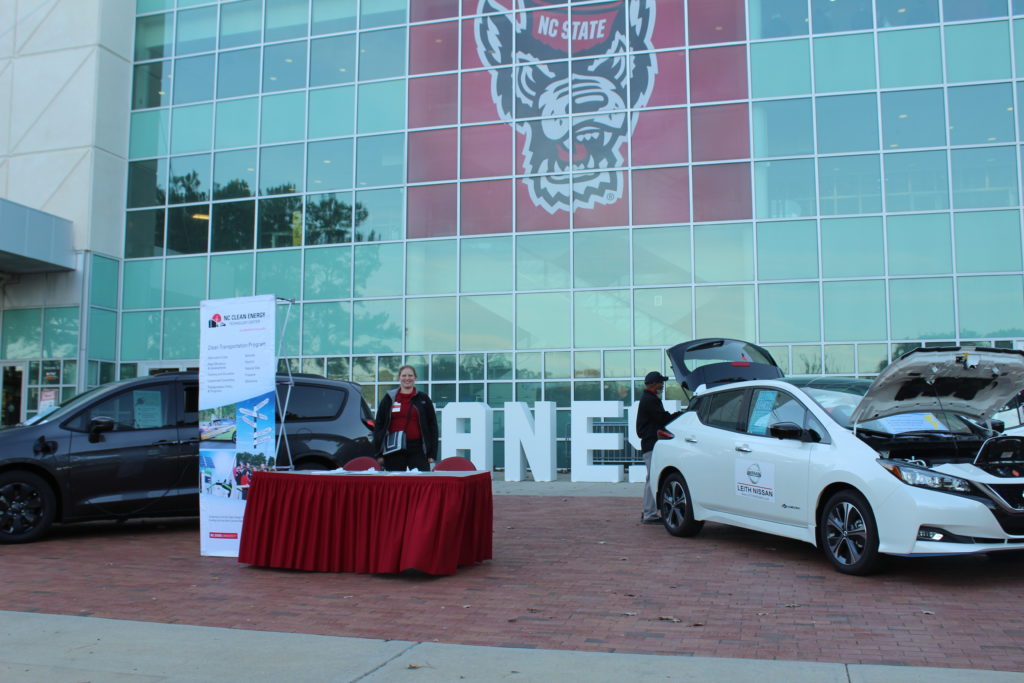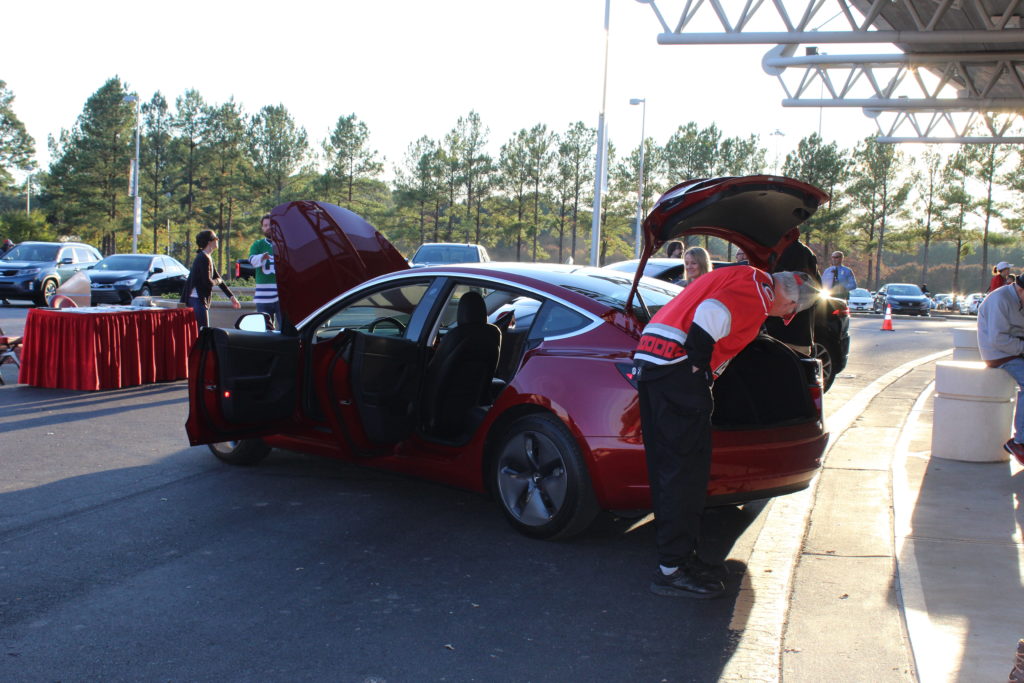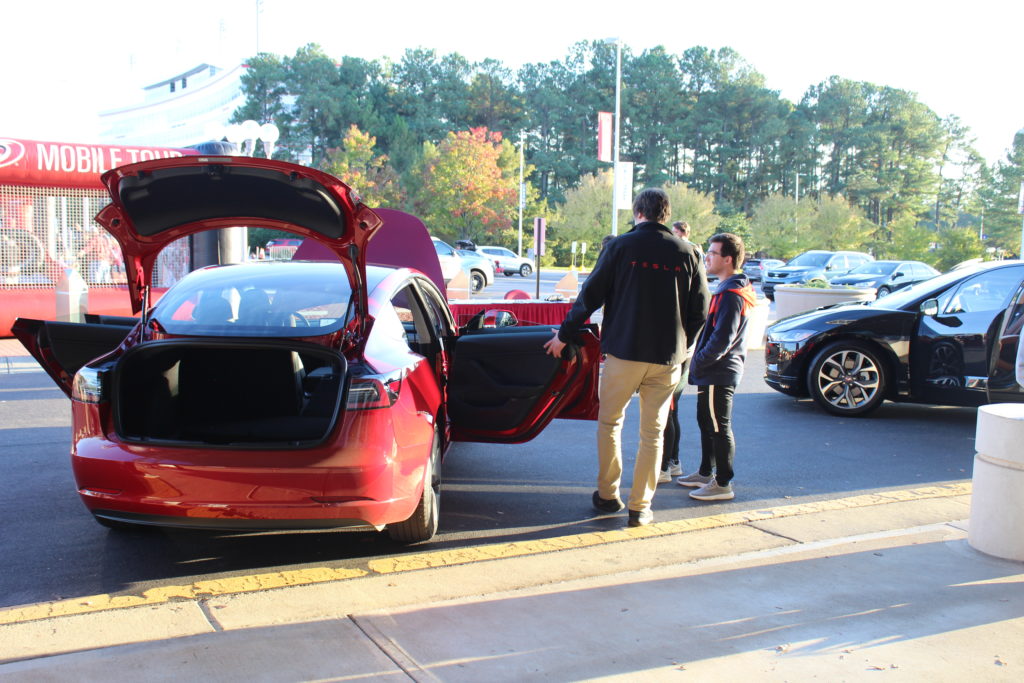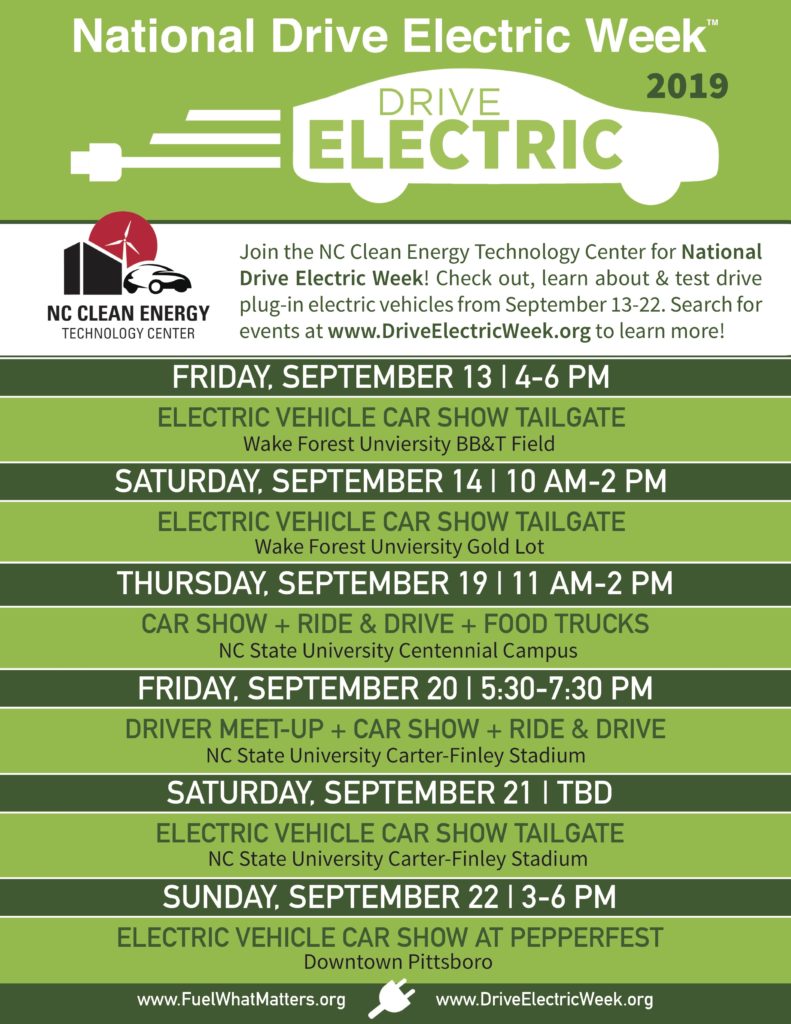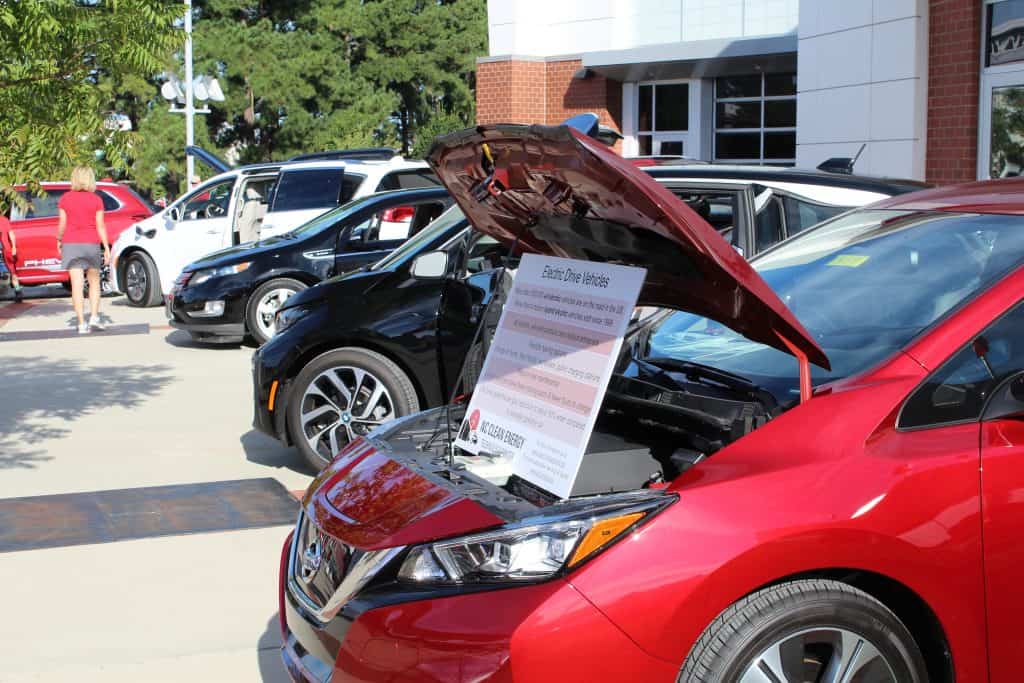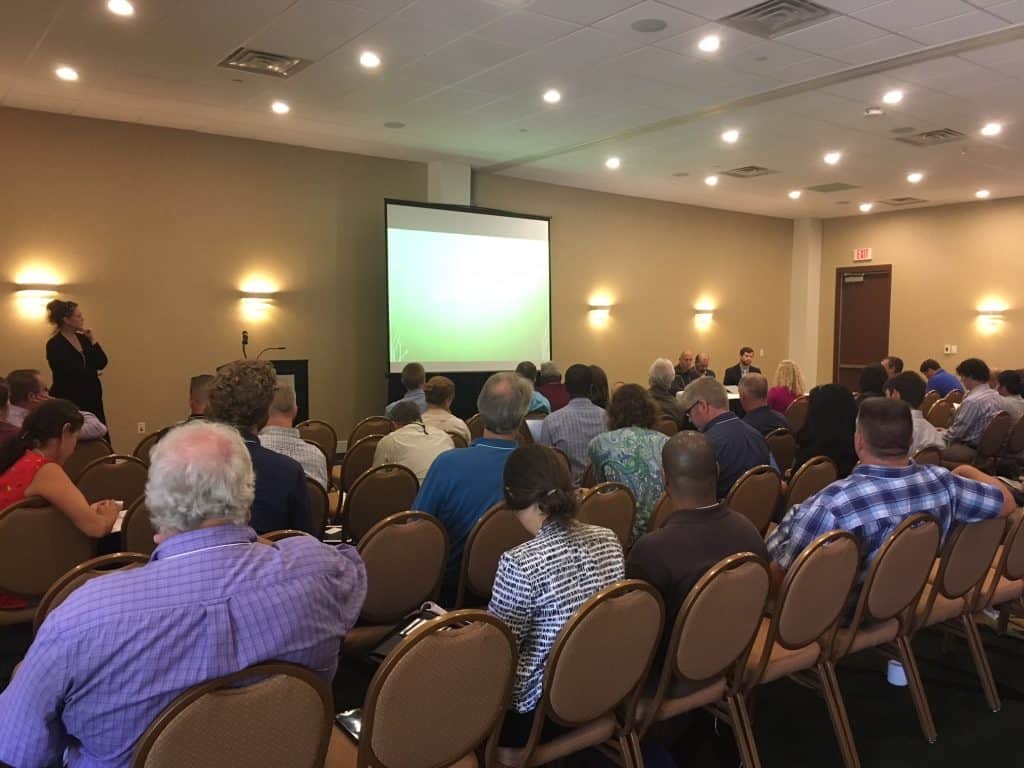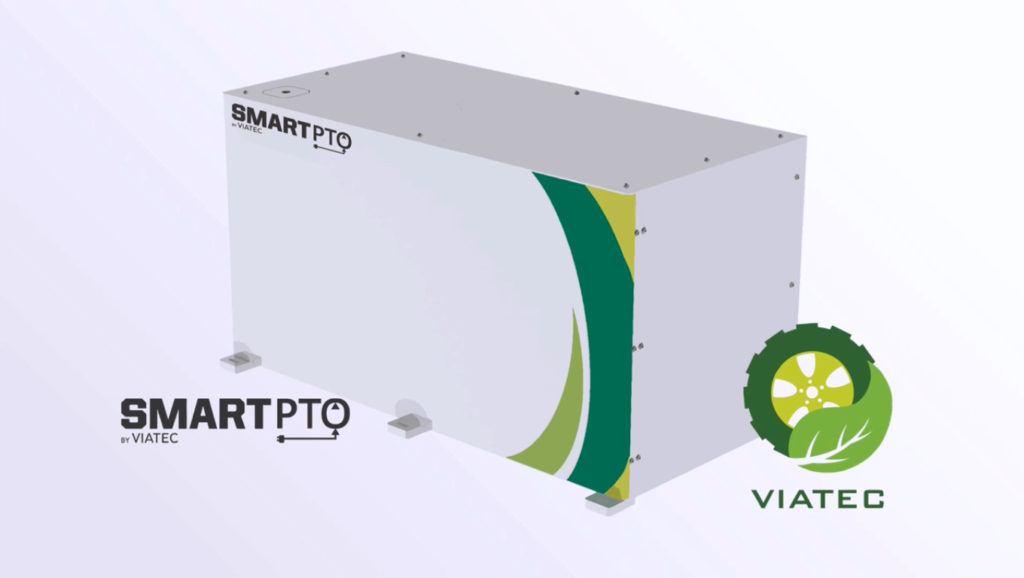
Duke Energy recently introduced Viatec SmartPTO electric power takeoff units for its bucket truck fleet. The new units allow crews to turn off the diesel engine and rely on electricity when operating the lift – saving on fuel and maintenance costs, extending the life of the trucks, and reducing emissions. The SmartPTO units were funded by NC Clean Energy Technology Center’s (NCCETC) Clean Fuel Advanced Technology (CFAT) project.
“A major objective of CFAT is to promote and accelerate the adoption of new clean transportation technologies,” said Rick Sapienza, Director of the Clean Transportation Program at NCCETC. “The Viatec SmartPTO is a perfect example of the CFAT mechanism working to its intent.”
The battery outlasts the normal bucket truck shift and charges overnight on a basic 110-volt receptacle, according to Duke Energy. When needed, crews are able to revert to operating the lift from the diesel engine in emergency situations, such as storms, that require 24-hour use. The engine being off also allows crew members to more easily communicate from the bucket to the ground.
“I’m especially pleased for the operators of these trucks and the line-workers who ride in the bucket, because air-quality on the job site is so dramatically improved when these trucks can stop idling,” said John Bonitz, Clean Transportation Specialist at NCCETC.
Duke Energy plans to soon expand SmartPTOs to 24 bucket trucks and is considering making them standard on all new bucket trucks.
“A company of the stature and magnitude of Duke Energy embracing this technology will aid in pushing others in the industry to consider and adopt the SmartPTO technology,” Sapienza said. “SmartPTO is robust from a system standpoint, which means reliability and durability. Also, if there is a system breakdown or failure, the system is a parallel design and the truck can revert to its normal mode of operation. Regardless, the truck can remain in service and complete its job.”
NCCETC estimates that bucket trucks burn nearly a gallon of diesel fuels per hour of idling. Based on an industry study conducted by Quanta Services (Green Truck Show March 2018), an electric PTO system is estimated to save about 1800 gallons of fuel annually, in standard operations. In addition, eliminating the idling on the truck engine also reduces carbon emissions to the tune of almost 38,000 pounds of CO2. The noiseless operation of systems creates safer operating conditions for the crew and the reduced wear-and-tear on the truck engine extends the truck life.
“The units involve much less integration with the chassis or the aerial equipment relative to their competitors,” said Mike Allison, Duke Energy’s Director of Fleet Design and Technical services. ”There is no loss of performance vs. running off of the diesel engine and chassis PTO. Fuel reductions have been as expected and the units are extremely quiet.”
The CFAT program, which NCCETC has administered since 2006, aims to reduce transportation-related air pollution emissions by funding public and private organizations projects in 24 eligible North Carolina counties. CFAT is supported with federal Congestion Mitigation Air Quality (CMAQ) funds provided by the NC Department of Transportation (NC DOT). In 2019, up to $2,350,000 in federal funding is being awarded. The next Request for Proposals for CFAT will be targeted for January 8, 2020, and applications will be due March 17.
In 2018, Town of Apex installed three SmartPTO units after being awarded the CFAT grant. Take a look at many more CFAT funded projects here.
“We are appreciative of the work that has been done by [NCCETC] in making the funds available to jump start our movement to the Viatec system,” Allison said.
“The financial assistance makes the difference between an organization doing a project or not,” Sapienza said. “Quite often once an organization gains experience and realizes the results and impact of the various technologies, they continue expanding their use without funding, because it makes sense due to efficiency, financial and ecological reasons – a win all around.”
Stay updated and learn more about the CFAT grant here.

